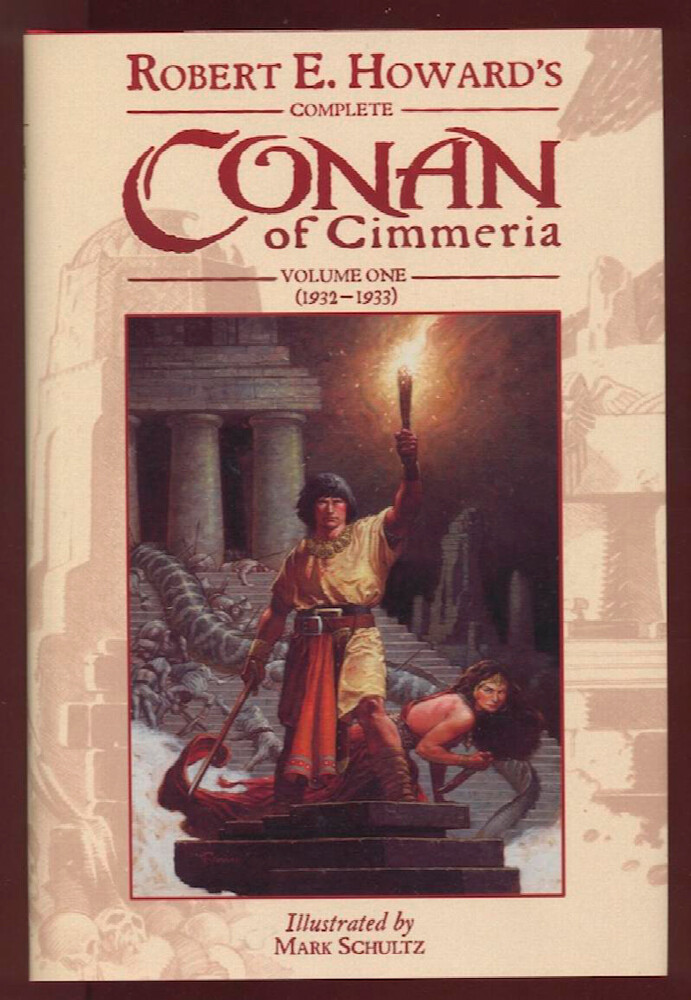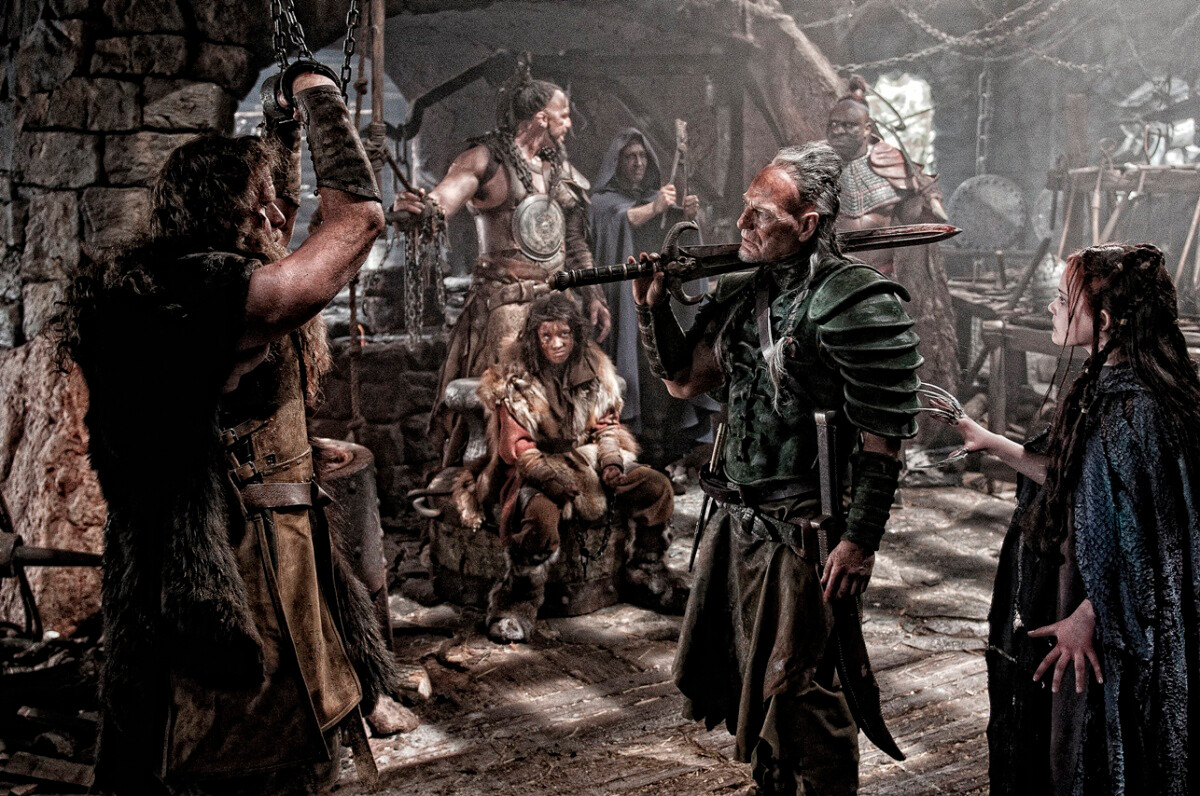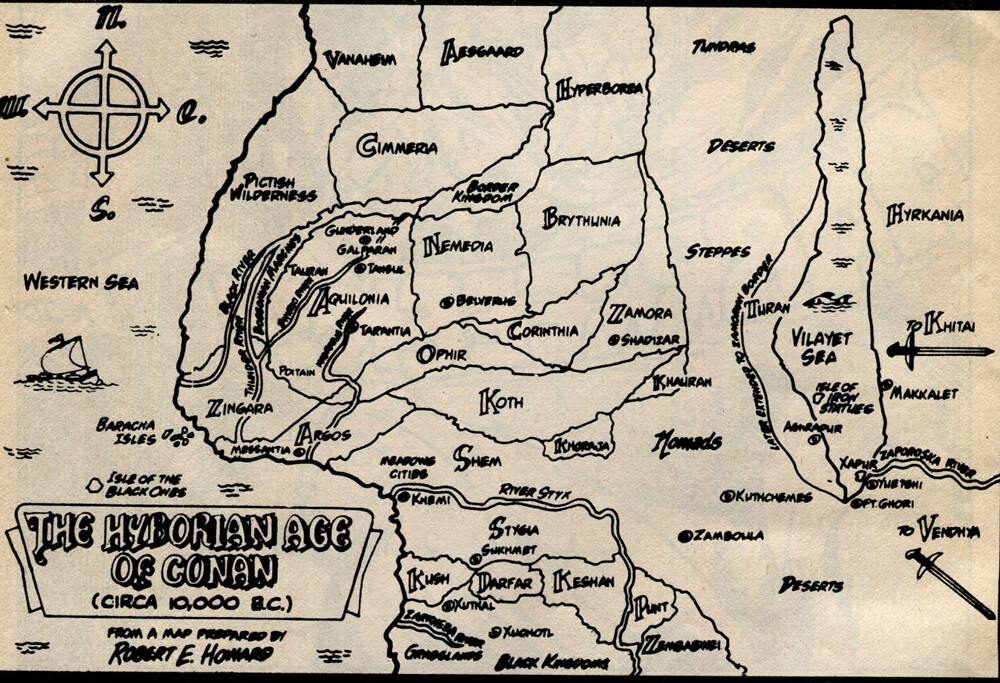
The epic sword and sorcery saga about a brutal warrior’s quest to avenge his parents, who were killed by the forces of a vicious necromancer, captivated the attention of millions of fans from around the world. Both Arnold Schwarzenegger and Jason Momoa played the character in 1982 and 2011 respectively.

The original book series, which gave birth to the Conan The Barbarian saga, has a surprising twist that puzzled fans of the franchise making them ask: Did Conan The Barbarian come from Russia?
The Conan universe was launched in the early 1930s by Texan author Robert E. Howard. Howard’s stories were never collected during his lifetime. Nonetheless, after his death, he was credited with launching the sword and sorcery genre in literature.
The first collection of Howard’s stories about Conan was published only in 2002 in a book titled The Coming of Conan the Cimmerian.

The events in the book happen at the time of the so-called Hyborian Age, a fictional period of Earth’s history created by the author specifically to serve as the setting for the Conan tales.
A fan of history, Howard realized the difficulties associated with maintaining historical accuracy in his work of fiction. To avoid burdening readers with lengthy explanations and unnecessary details, the author conceived a fictional vanished age and placed his characters in it.

As to Conan’s origin, the author chose a similar approach: he selected names and locations that corresponded to the ones existing in reality and spiced them up with a fair share of fantasy.
Robert E. Howard made Conan the Cimmerian. Although Cimmerian people existed in reality, the author’s idea of their origin was nothing more than the fruit of his creative mind.
In reality, the Cimmerians were nomadic Indo-European people who migrated from Central Asia to the Pontic-Caspian steppe – that extended from the Danube River to the Ural River and covered the area of the Black Sea coast – sometime around 1000 BC. The area where these tribes resided included the northern coast of the Black Sea, parts of Crimean peninsula and the area of the Kerch Strait.

Hence the theory that Conan the Barbarian could have been born on the territory of modern Russia. However, the author of the original story had a different view of Conan’s birthplace he had called Cimmeria.
Some believe Howard imagined the Cimmerian land to be geographically located over modern Ireland, Scotland, Wales and England. Yet again, on certain maps, fictional Cimmeria exists in an absolutely fictional setting and it appears pointless to locate it geographically in the real world.

An illustration of The Hyborian Age primarily based upon a map hand-drawn by Robert E. Howard in March 1932.
The author imagined fictional Cimmeria as dark and unwelcoming land where survival under tough conditions strengthens men.
The poem Cimmeria by Robert E. Howard gives a description of the area:
“It was a gloomy land that seemed to hold
All winds and clouds and dreams that shun the sun,
With bare boughs rattling in the lonesome winds,
And the dark woodlands brooding over all,
Not even lightened by the rare dim sun
Which made squat shadows out of men; they called it
Cimmeria, land of Darkness and deep Night.”
In contrast to the gloomy fictional land, the Black Sea coast and other regions, where authentic Cimmerians used to settle, is a much more cheerful place. Turns out, fictional Cimmeria is nothing more than Howard’s elaborate fantasy that has nothing in common with the historical reality except for the tribe the fictional land derives its name from.
Dear readers,
Our website and social media accounts are under threat of being restricted or banned, due to the current circumstances. So, to keep up with our latest content, simply do the following:
If using any of Russia Beyond's content, partly or in full, always provide an active hyperlink to the original material.
Subscribe
to our newsletter!
Get the week's best stories straight to your inbox